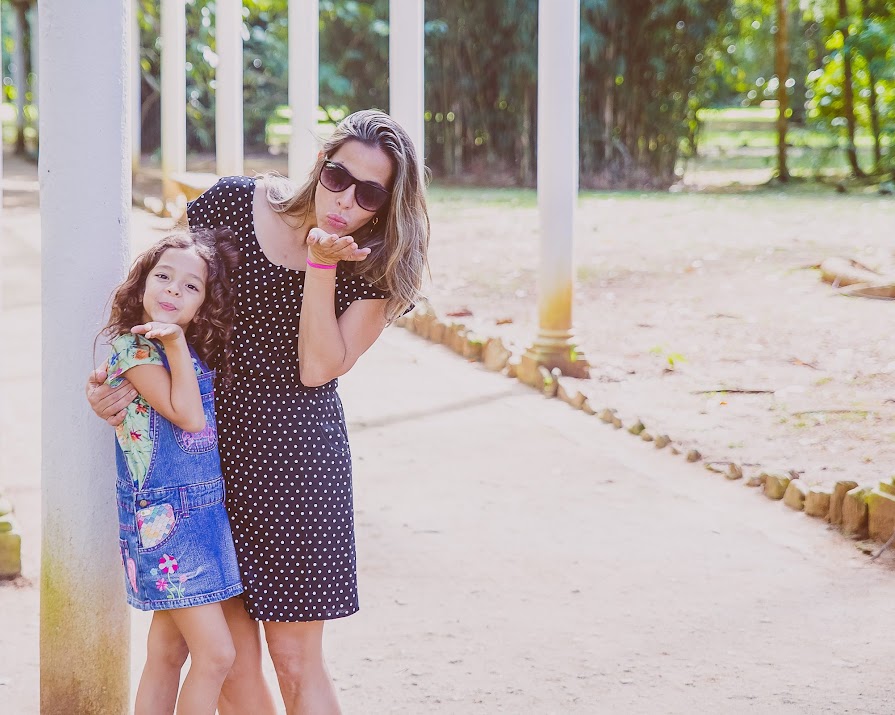By Meg Walker
22nd Mar 2018
22nd Mar 2018
As the HSE embarks on another information campaign on the HPV vaccine, I’d like to share my thoughts on the issue. Please bear with me, as my original opinions on the matter stemmed from innocence, lack of the full picture, and the vulnerability most mothers experience at one time or another.
For those who don’t understand why anyone would not vaccinate their children against the HPV virus, I’d like to give you a glimpse as to how I was introduced to the vaccine. It was the spring of 2009. My daughter was just a few months old. Tiny, trusting, and whose future was – at least for the next 18 years – resting in my hands. (Why on earth would anyone give me this level of responsibility?)
I had only just joined Facebook earlier that year. A fellow mum friend in America shared a video where a young female doctor, claiming to have had an initial part in the “cervical cancer vaccine” now being extensively rolled out in the US, said she had serious concerns about the effects the vaccine was having on some young girls, and that this issue was being ignored in favour of profit. She claimed it would soon be “enforced” to all girls aged 12 in America – that if they refused to accept the jab, they would not be allowed to attend school until the vaccine was given (this in itself got me to sit up and listen intently). She explained that there had been hundreds of cases of young girls across the country and in Canada and other nations where the vaccine was being rolled out, where they experienced “severe” side effects – not just dizziness post-jab, but passing out, long-term fatigue, seizures and even death in a few rare cases. It scared the bejesus out of me. And god help me, I didn’t fact check. I didn’t look more deeply into the source. And yes, I shared the video, with a comment to the effect of “no way am I letting this NEAR my daughter”.
Fast forward to 2010 and the vaccine was finally being rolled out in Ireland. I had almost forgotten about that video, until the Regret movement started getting airtime just a few years later – on radio programmes, in the papers, and even right there in the middle of a Vincent Browne People’s Debate I attended in Malahide on the issues that matter to constituents ahead of the 2016 general election. A girl and her mother stood up and asked what the candidates proposed to do about people like them, affected by the HPV vaccine. Oh god, there’s a real life person. So yes, once again, I vowed to tick the No box on the leaflet when the time came that my daughter would come home from school in her first term at secondary school.
Now, for those who are still feeling like they do not intend to get their daughter vaccinated, I hope you will continue reading, because my feelings on the issue have changed rather drastically in a very short time.
Last year, as the uptake of the vaccine dropped dramatically, the HSE rolled out a campaign encouraging parents to get their daughters vaccinated. I didn’t particularly like the tone of the radio ads. They struck me as abrupt, and a little insensitive, not addressing the genuine concerns parents seemed to have about the vaccine (the vaccine uptake dropped significantly in 2016, so regardless as to the validity of the sources these parents must have been listening to, should that not be counteracted with a full-on attack of helpful mass media myth-busting, rather than a few 30-second radio ads?). Medical professionals and scientists will sometimes (not always, mind) suggest that it is their job to fully test the vaccines and get them to the public. It’s their job to save lives. It’s not their job to pander to the uninformed, to answer to fake news or popular myth. And they may be right, but someone needs to take the time to fight back against the anti-vaxxers who are poisoning the information pool. As far as I knew, there were parents who genuinely felt their daughters received serious adverse effects from the vaccine, and in their minds, their daughters would have been better off if they hadn’t ticked the Yes box. And on the back of this, there were hundreds more parents unsure what to do, not wanting to make the wrong decision. They were worried. That, surely, deserved a greater explanation. Some serious airtime.
I must have missed it because when I made the mistake of Tweeting last October that I felt there deserved a balanced debate, perhaps on RTÉ’s Prime Time, that would address the concerns parents had and help break down the myths and inform them of all the facts, while relieving the worry they may carry, I received a wave of one-line responses, mostly from angry, frustrated science-buffs who thought I was being ignorant.
One Twitter user, however, was actually extremely helpful. She sent me a YouTube link to – you guessed it – an RTÉ Prime Time episode which aired in November 2016 that addressed this very issue (as I said, I missed it). And another sent me links to articles she felt did the trick. I read them, and responded with thanks for her help and interest in enlightening me to the full picture.
Clincher number one in changing my mind: The vaccine doesn’t just prevent cervical cancer. Around 80% of sexually active people (both men and women) are infected with HPV at some point in their lives; most never know they have the virus. Research illustrates that the vaccine may sharply reduce oral HPV infections that are a major risk factor for oropharyngeal cancer – a type of head and neck cancer. HPV has been strongly linked to a number of other cancers in men and women including cancers of the anus, mouth and throat, vulva, vagina and penis. I suppose innocently I thought my daughter’s likelihood of getting a particular form of cancer (cervical) had to be weighed against the suggested risks. But given what this vaccine can in fact do, the benefits do surely outweigh the potential side effects suggested by some (a link for which still has not be proven). According to the HSE’s website, 300 Irish women get cervical cancer every year, 90 of whom will die from the illness (http://www.hse.ie/eng/health/Immunisation/pubinfo/schoolprog/HPV/). And one of the first countries to introduce the vaccine, Australia (who introduced it in 2007) has seen a decrease of more than 50% in rates of pre-cancer of the cervix in the last ten years.
Clincher number two: The people behind the anti-HPV vaccine movement worldwide – and videos like the one I saw back in 2009 – are most often religious conservatives, pushing the abstinence argument over any scientific, medical address to real health issues. They’re the ones harping on that the vaccine will “only make girls have more sex” (an argument I always found ridiculous – what the hell does the bishop or anyone else have to do with this vaccine? And besides, you can get the virus from just one sexual partner, so there goes that case).
Clincher number three: Since it was rolled out, more than 220,000 Irish girls have safely received the vaccine; and more than 200 million doses of the vaccine have been administered around the world. This puts in perspective the few cases of girls who’ve experienced symptoms like chronic fatigue or epileptic seizures around the time they received the vaccine. This is the one answer to the myths that has been shouted about since this debate began – there has never been proof that these girls actually developed these symptoms as a result of the vaccine. Cases like these have been investigated and followed up on. And still, no link has been proven. As it happens, issues like chronic fatigue are quite common in adolescent or teenage girls, and the vaccine has shown to be more effective when administered in young girls aged around 12 or 13, so coincidence plays its natural part here, as does family history and pre-existing conditions.
So now, I will, when the time comes, tick that Yes box. No decision like this is ever easy. I always vaccinated my children at every stage and for every disease I was recommended to. And yes, I closed my eyes and wished the day would hurry up and pass so that I’d be able to rest easy, knowing I did the right thing, and my child was okay. This time will be no different – only I won’t be there to hold her hand. She’ll have to do this alone, in school, with only the administrator for company. I’ll probably be at my desk saying a silent prayer for her though.
There only remains one outstanding issue now for me – as countries like Australia (which, in 2013, became the first to implement an HPV vaccine programme for all boys aged 12/13), Austria, Canada, and Switzerland are vaccinating boys, when might we see the HPV vaccine rolled out for the other half of 12-year-olds here? (My son starts secondary school in the autumn, so the HSE better hurry up!) I think our boys deserve the same protection as girls (the vaccine can prevent penile, anal and head and neck cancers, as well as genital warts).
One last thing. I, like most parents today, am a busy working mother with a lot on her plate, and am trying to do my best. So I would like to ask the medical community to please understand, and help the rest of us feel a little better about the decisions we have to make every day. Listen, have compassion, and calmly try and explain your side or direct us to someone else who can. Especially today, we have a LOT of information coming at us from all sides, about everything. We’re the too-much-information generation. I have pregnant friends and family members who aren’t allowed probably double what I wasn’t allowed when I was last pregnant nine years ago. God knows the decisions they’ll have to make in another decade.
So as the new information campaign goes out to the public, I’d like to challenge all of you to book your smear test (I get one every 18 months – one free, one I pay for – it’s so simple; the hardest thing is to just find time in the diary, but if you can make time for coffee with a friend, or a trip to the nail salon, really you can make time for this), and get informed on the HPV vaccine – whether you have a daughter or not, you can still share your opinion and affect someone else’s decision, and you want to be adequately prepared with the right information when that opportunity arises. Here are just a few starting points…
http://www.hse.ie/eng/health/Immunisation/pubinfo/schoolprog/HPV/hpv-vaccine-facts/
http://www.hpvvaccine.org.au/parents/myths-and-facts-about-hpv-and-the-vaccine.aspx
https://www.ncri.ie/news/article/hpv-associated-cancers-ireland-report-national-cancer-registry
And here’s the RTÉ Prime Time episode on the issue: https://www.youtube.com/watch?v=eMhJ9ksTI70
If you haven’t yet had a smear test, you can register for your free one at https://www.cervicalcheck.ie.
Photo by Patricia Prudente on Unsplash























